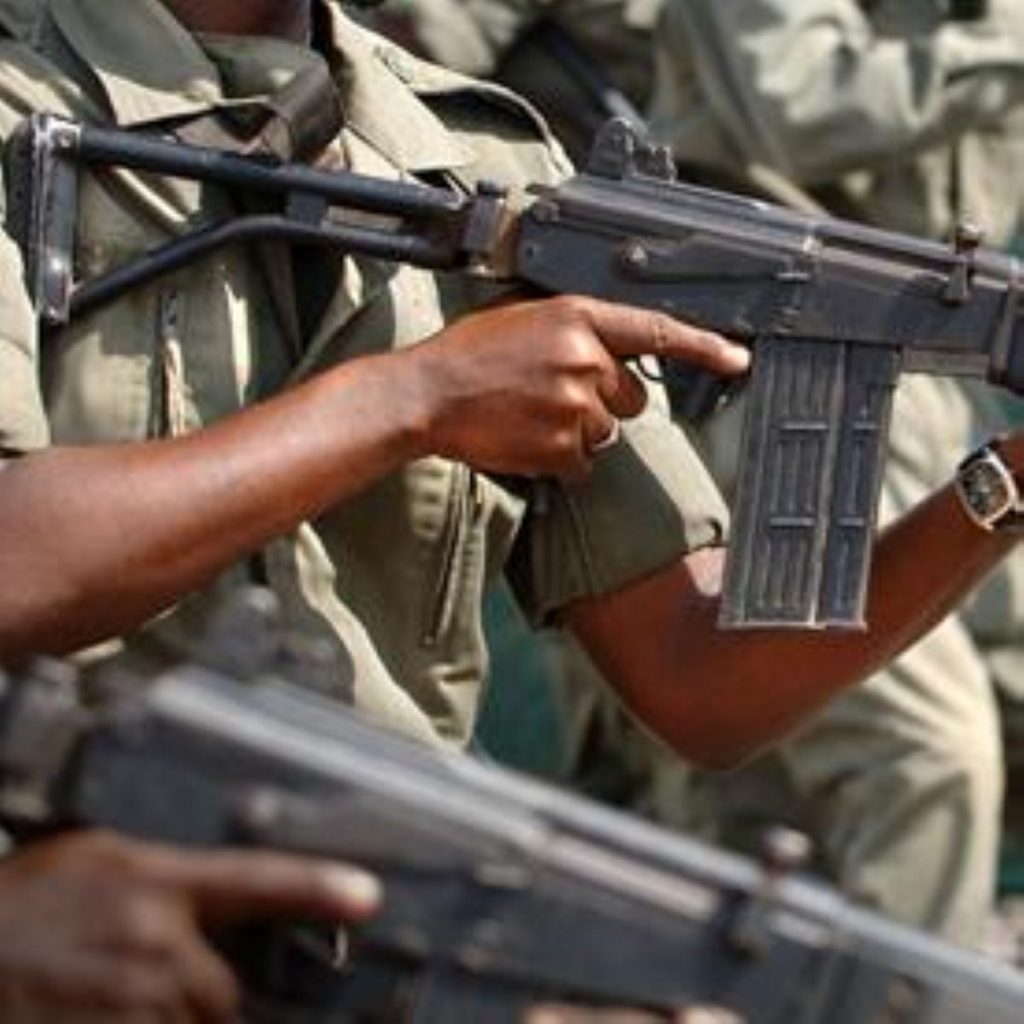Fox keen on more arms exports
By Ian Dunt Follow @IanDunt and Alex Stevenson Follow @alex__stevenson
Britain's arms manufacturers will have to do more to make UK military goods exportable to other countries, Liam Fox has said.
The defence secretary told firms gathered at the Defence and Security Equipment International (DSEI) arms fair in London that the best way to safeguard jobs in the industry was to "widen the customer base".
Export sales amounted to 40% of total turnover last year, according to the latest figures, while security exports grew by eight per cent.


But Mr Fox wants Britain to increase the amount of arms exported overseas.
"For too long export potential has been ignored when initiating projects for the UK's own use. That needs to change," he said.
"Exportability needs to become engrained in the requirement setting, commissioning and production processes – because only through exportability can risks and costs be shared in a viable way."
The Ministry of Defence (MoD) is set to work with defence firms to understand the needs and priorities of Britain's "allies and partners", he continued.
"Successful exports is not just about selling equipment and capability; increasingly success is based the ability to create joint ventures with the excellent industries that exist amongst the countries represented here at DSEI," Mr Fox added.
"Quite rightly sovereign nations wish to have indigenous defence industries, perhaps not all embracing, but which play to individual strengths and areas of expertise.
"We should be looking at these as opportunities for our industry to grow and for government's deepen and strengthen partnerships."
Fox accused of betraying Arab Spring
The defence secretary found himself accused of betraying the Arab Spring today after Liam Fox praised the arms trade at the DSEI event, which was attended by Bahrain.
Arms campaigners are incensed that the DSEi fair invited Bahrain and Saudi Arabia, who played a key role in suppressing popular protests in Bahrain earlier this year.
"We certainly should not be trading or selling arms to these countries," a spokesperson for the Campaign against the Arms Trade told politics.co.uk.
"The parliamentary committee on arms exports controls really damned the government for selling arms if there was a likelihood they would be used for internal repression, and that is certainly the case in Bahrain, Saudi Arabia and other countries in Middle East."
Mr Fox's speech later is expected to highlight the arms trade's role in stimulating economic growth and see him insist he is "proud" of the industry's role in the UK economy.
Protestors called the defence secretary's argument "disingenuous" and pointed out that only 0.2% of the British workforce is employed in the arms trade. It accounts for 1.2% of national exports.
Over 30 people were killed in Bahrain this year when protests against the ruling al-Khalifa family saw Saudi troops enter the country using armoured vehicles reportedly purchased by British company BAE Systems.
It later emerged that the government had approved sales of shotguns, teargas and rubber bullets to Bahrain, all of which are used in crowd control.












